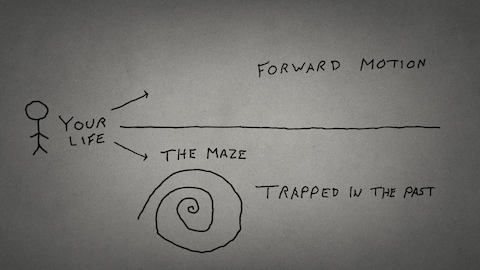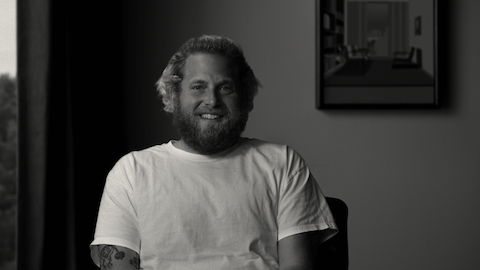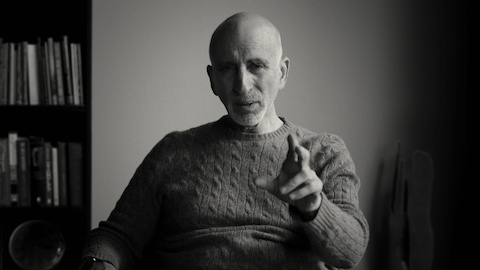Review: "Stutz"
- Jennifer Green

- Nov 8, 2022
- 2 min read
It's unusual and frankly lovely to see two men open up, share their insecurities, and delve into meaningful moments in their lives, exposing vulnerabilities candidly on camera. How Stutz, Jonah Hill's love letter to his psychiatrist, resonates with individual viewers may depend a lot on where that person is in his or her life -- much like therapy itself.
The film is loosely set up as a therapy session, but with the doctor and patient alternately probing each other about their surprisingly analogous life experiences. The discussion is edited to fit into sections based on some of Stutz's best-known "tools" for dealing with mental health and life challenges. These are hand-illustrated on cards Stutz uses to visualize concepts for patients.
Stutz also walks Hill through some of the tools, asking him to close his eyes and envision scenarios, then explain what he learned or how he feels. Interested viewers could ostensibly try the methods out at the same time at home. One of his intentions in making the movie, Hill says, is to share with as many people as possible tools that have helped him in life.
Experimental in subject matter as well as style, the black-and-white documentary is set entirely in one space and plays with peeling back the filmmaking process to a bare-bones minimum. This shedding of artifice also feels symbolic of the therapy process. Around 20 minutes in, Hill addresses his insecurities about how filming is going, admitting some filmmaking "tricks" (no spoilers here) and what he thinks is and isn't working. Stutz laughs that this will either be the best or the worst documentary ever.
They face each other in some scenes and sit next to each other in others; every now and then an editing snag mixes the two or lets a corner of a studio lighting fixture invade the frame. The camera regularly closes in on Stutz's pill box and his body or parts of it, capturing shaking and mannerisms related to his Parkinson's disease.
The two regularly rib each other and reveal the close personal relationship they've forged. If that sounds anathema to the stereotype of the "objective" and distant psychiatrist, that seems a big part of the point. This film and its stars aim to convey a message of hope. Putting natural cynicism aside, Hill does appear to have gained a lot from his work with Stutz, and their friendship seems beneficial for them both.
Read the full review at Common Sense Media.
Images courtesy of Netflix.












Comments